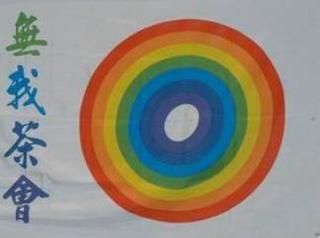Wu-Wo Tea Ceremony (無我茶會)

Written by
Steven R. Jones
Taipei, June 16, 2005
The Concept of Wu-Wo Tea Ceremony
“Wu-Wo” is a style of Tea Ceremony. “Wu”, and “Wo”, are actually Chinese words with philosophical meaning. When we use the word “wu” (無), it means; a void or absolute emptiness as far as the mind or senses can determine therefore it is like an infinite space. When we use the word “wo” (我), it means mine, self or being. When we put these two words together they almost seem like a contradiction in terms, the word “wo”, seems like being and the word “wu”, seems like not being. But we must reach and look deeper into the meanings of both words. “Wu-Wo” (無我), means; to empty the mind like an endless void and it is without anything to sense; it is just “being” with no physical or mental attachments. For example, we should forget about our: knowledge, wealth, appearance, and etc. So there is group equality without prejudice. This is our concept of “Wu-Wo”. And this is shown in the “Wu-Wo Tea Ceremony”.
The Symbol of Wu-Wo Tea Ceremony
A circular rainbow is the symbol for the Wu-Wo Tea Ceremony. Why does the Wu-Wo Tea Ceremony’s flag have the colors of the rainbow? A rainbow is made of seven basic colors and when combined together become blank white light. The Wu-Wo Tea Ceremony pursues the “circular rainbow” and goes towards the blank light or empty circle in the rainbow's center. The blended white light or empty circle of the flag’s rainbow can be thought of as “wu”. The Wu-Wo Tea Ceremony follows this concept, for example, people have: knowledge, wealth, appearance, etc, and tries to forget these things, and transcend.
The History of Wu-Wo Tea Ceremony
Wu-Wo Tea Ceremony began in Taiwan by a small group of people. “Lu-Yu Tea Culture Institute” the founder of the “Wu-Wo Tea Ceremony”; has been an active part in the growth of this once small group from Taiwan (almost twenty years ago) to now an International Organization, ranging from all the corners of the globe. I have been translating in English "Wu-Wo Tea Ceremony" and writing about the many facets of Tea Culture.
***
